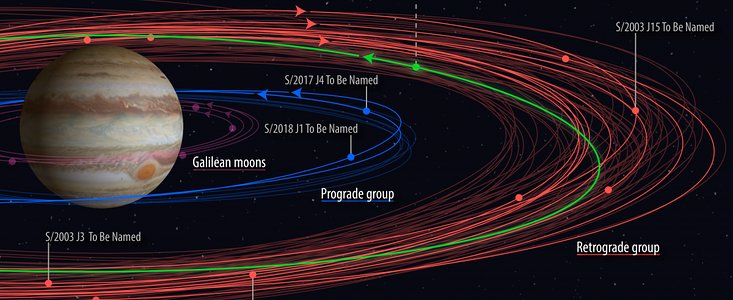Main Menu
- News
- Press Releases
- Announcements
- Dates and Deadlines
- Planetary Surface Feature News
- Submission of News Proposals
- Newsletters
- Image Archive
- Video Archive
- Press Room
- Science
- Scientific Bodies
- Divisions
- Division A Structure
- Division A Homepage
- Scientific Objectives
- Commissions
- Working Groups
- News
- Meetings
- Division Members
- Documents
- Awards & Prizes
- Members
- Division A Homepage
- Division B Structure
- Division C Structure
- Division D Structure
- Division E Structure
- Division F Structure
- Division G Structure
- Division H Structure
- Division J Structure
- Past Division Steering Committees
- Division A Structure
- Commissions
- Commission A1 Structure
- Commission A2 Structure
- Commission A3 Structure
- Commission A4 Structure
- Commission B1 Structure
- Commission B2 Structure
- Commission B3 Structure
- Commission B4 Structure
- Commission B5 Structure
- Commission B6 Structure
- Commission B7 Structure
- Commission C1 Structure
- Commission C2 Structure
- Commission C3 Structure
- Commission C4 Structure
- Commission C5 Structure
- Commission D1 Structure
- Commission E1 Structure
- Commission E2 Structure
- Commission E3 Structure
- Commission E4 Structure
- Commission F1 Structure
- Commission F2 Structure
- Commission F3 Structure
- Commission F4 Structure
- Commission G1 Structure
- Commission G2 Structure
- Commission G3 Structure
- Commission G4 Structure
- Commission G5 Structure
- Commission H1 Structure
- Commission H2 Structure
- Commission H3 Structure
- Commission H4 Structure
- Commission J1 Structure
- Commission J2 Structure
- Commission J3 Structure
- Commission X1 Structure
- Commission X2 Structure
- Past Commission Organising Committees
- Working Groups
- Centres
- Divisions
- Scientific Meetings
- Rules & Guidelines
- General Assemblies
- Meeting Proposals
- GA Symposia Letters of Intent
- Focus Meeting Letters of Intent
- Non-GA Symposia Letters of Intent
- GA Symposia Proposal Submissions
- Non-GA Symposia Proposal Submissions
- Focus Meeting Proposal Submissions
- Meeting Confirmation Form
- Future IAU Meetings
- General Assemblies
- EC Meetings
- Officers' Meetings
- Regional Meetings
- Symposia
- Focus Meetings
- Institutional Meetings
- IAU Offices Meetings
- IAU-Sponsored Meetings
- Letters of Intent submitted for 2024
- Letters of Intent submitted for 2023
- Letters of Intent submitted for 2022
- Letters of Intent submitted for 2021
- Letters of Intent submitted for 2020
- Past IAU Meetings
- General Assemblies
- EC Meetings
- Regional Meetings
- Symposia
- Joint Discussions (GA)
- Special Sessions (GA)
- Focus Meetings
- Post Meeting Reports
- CAP Conferences
- Officers' Meetings
- Colloquia
- Templates
- Other Meetings
- Grants & Prizes
- IAU Grants
- IAU & The Gruber Foundation
- TGF Fellowships
- Application Procedure
- Recipients
- Fellows 2024
- Fellows 2023
- Fellows 2022
- Fellows 2021
- Fellows 2020
- Fellows 2019
- Fellows 2018
- Fellow 2017
- Fellow 2016-2
- Fellow 2016 -1
- Fellow 2015
- Fellow 2014
- Fellow 2013
- Fellow 2012
- Fellow 2011
- Fellow 2010
- Fellow 2009
- Fellow 2008
- Fellow 2007
- IAU TGF Fellowship Selection Committee
- TGF Cosmology Prize
- TGF Fellowships
- IAU, NASL and the KAVLI Prize
- PhD Prize
- IAU & The Shaw Prize Foundation
- Astronomy Education, Outreach and Development
- IAU–International Visegrad Fund Mobility Awards
- Scientific Bodies
- Publications
- IAU Publications
- IAU Strategic Plan
- Symposia
- WGSBN Bulletins
- Regional Meetings
- Information Bulletins/Catalyst
- E-Newsletters
- 2023
- 2022
- 2021
- 2020
- 2019
- 2018
- 2018 n°1
- 2018 n°2
- 2018 n°3
- 2018 n°4
- 2018 n°5
- 2018 n°6
- 2018 n°7
- 2018 n°8
- 2018 n°9
- 2018 n°10
- 2018 n°11
- 2018 n°12
- 2018 n°13
- 2018 n°14
- 2017
- 2016
- 2015
- 2014
- 2013
- 2012
- 2011
- 2010
- 2009
- 2008
- 2007
- 2006
- Focus Meetings
- Transactions A
- Transactions B
- Related Publications
- GA Newspapers
- CAPjournal
- IAU Books
- Brochures
- IAU Offices
- WG Reports
- Commission Reports
- Division Reports
- Past IAU Publications
- Rules, Guidelines and Instructions for Proceedings
- Publishers
- IAU Publications
- Administration
- About the IAU
- Statutes & Rules
- IAU Policies
- IAU Executive Bodies
- Executive Committee
- Special Nominating Committee
- Membership Committee
- Finance Committee
- Resolutions Committee
- Budget Committee
- Past Committees
- Executive Committee
- Special Nominating Committee
- Membership Committee
- Finance Committee
- Resolutions Committee
- Editorial Boards
- Past Program Groups
- Budget Committee
- IAU Secretariat
- Resolutions
- Members Administration
- National Members
- Individual & Junior Members
- Members joined per year since 1994
- Geographical and Gender Distribution
- Membership Committee
- Honorary Members
- Associates
- IAU Member Statistics
- Administrative Dates & Deadlines
- International Organisations Relations
- Donate to the IAU
- Training in Astronomy
- Astronomy for Education
- Astronomy for Development
- Astronomy for the Public
- Office for Astronomy Outreach
- FAQ
- Themes
- Satellite Constellations
- Astronomy in Everyday Life
- How to Report a Discovery
- Careers in Astronomy
- Defining our Place in the Cosmos
- The Constellations
- Light Pollution
- Measuring the Universe
- Near Earth Objects
- How to Participate in Astronomy Research
- Naming of Astronomical Objects
- Naming of Exoplanets
- Buying Star Names
- Naming Stars
- Pluto and the Solar System
- IAU Member Statistics
- Our Moon: the Moon
- Meteors & Meteorites: The IAU Definitions of Meteor Terms
- UNESCO-IAU Portal to the Heritage of Astronomy
- Social Media
- Past Events
- Call for Online Resources
- Astronomy@Home Awards
- Contact

